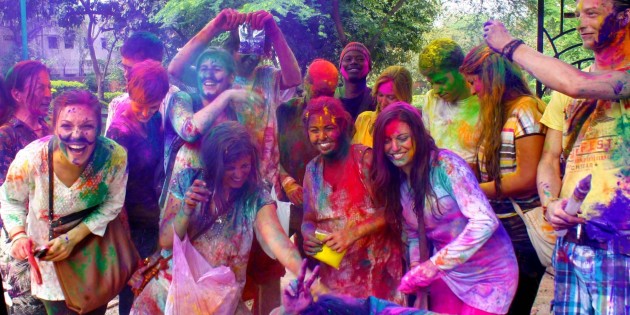Build political culture, shun hostility, exercise restraint (Commentary)
 Narayan Prasad Ghimire / Kathmandu: As Holi, the festival of colour and merriment is round the corner, the incident that occurred in the southern plains has spread a shock wave across the country.
Narayan Prasad Ghimire / Kathmandu: As Holi, the festival of colour and merriment is round the corner, the incident that occurred in the southern plains has spread a shock wave across the country.
The death of four persons in a clash between the security persons and the cadres of the Madhesi front has now dampened the forthcoming festival fervour.
The incident occurred at a time when the government has already announced the date for local election for coming May 14 and is certain to affect the political developments. It has obviously caused difference among the political parties.
The political parties, as per their positions, are making diverse argument and allegations over the incident. The social media has witnessed flurry of criticism of political parties, government and their activities. There are even vitriolic comments and charges.
It is the right of any political party to organize a peaceful rally and programme to advocate on its issues, especially when elections are knocking on the door. But, was that not ill-timed for the major opposition, CPN-UML, to launch the Mechi-Mahakali campaign in an area where people have been politically sensitive? Is that the nature of political cadres to go rowdy and attack peaceful programme? Was the security allowed to use force to take people’s lives? These questions have dogged every political aware citizen in the country now. Debate and discussion are rife.
Time will reveal whose mistake- of the UML or of the Madhesi front- this was to cause such scourge. But the damage has already been done, and it will take some time before the wounds are healed, and normalcy restored.
Meanwhile, issuing a press statement about the incident, the Home Ministry on Monday evening said the security persons were ‘compelled to open firing ultimately for self-defense after the mob attacked them.’
What is noteworthy here is- the National Human Rights Commission had urged all concerned not to disturb the programme the UML was organizing.
We of course have a history of scourge, ruin and devastation. After 2006, the civil peace began, but the wounds of the armed insurgency are yet to be healed. At such time, fomenting further violence and the widening rift among the political parties is another blunder.
Nepali people are now fed up with agony. The change that brings happiness in the lives of the common is the need. With the promulgation of the constitution, it is the time to nurture it, rather than tear bin it. The constitution reflects the cherished dream of Nepalis since the past six decades.
However, mere provisions of rights do not guarantee the effective implementation of the national charter, but building a good political culture is imperative to it. The most disappointing fact Nepal carries for over a decade is that political parties have failed to build the political culture that is accommodative and friendly. In the absence of accommodative politics, the political of negation takes precedence which gradually snares the citizen’s rights.
It is the post-modern period, that is to say, no interpretation is final interpretation. This post-modern notion has caused tremendous change in the traditional and classical definition and interpretation in any stream. Politics too is the same that cannot escape this reality.
There are multiple interpretations of national issues and affairs by different parties. Linking it to nationalism or nationality, some have even gone to the extent of calling Nepal a multi-national state, while some flatly reject this idea. Present politics has the links somewhere here that affects the political activities and interpretation.
Now, here is the need to narrow down the differences to apply in the context we are. Tagging different views as extreme views is again a big mistake as it easily brews hatred.
Only continuous debate and discussion hone the issues resulting in a resolution. It is a regular process.
It is therefore, the political parties despite having differing ideologies need to reduce hostility to one another. Nepal’s democracy does not suit threats and murder. Building political culture helps wipe out differences. Constant dialogue and discussion helps stir the issues for a solution. Let’s hope, the Saptari incident would serve as a wakeup call for our politicians to exercise restraint, mend their ways, and ensure normalcy before the desperately-needed election. RSS
